Are you seeking guidance and support in navigating life's challenges? Crafting a pastoral counseling request can be the first step towards finding the solace and advice you need. In this article, we'll explore how to frame your letter to convey your thoughts and feelings effectively. Join us as we delve into the best practices for writing a pastoral counseling request that opens the door to spiritual guidance and healing.
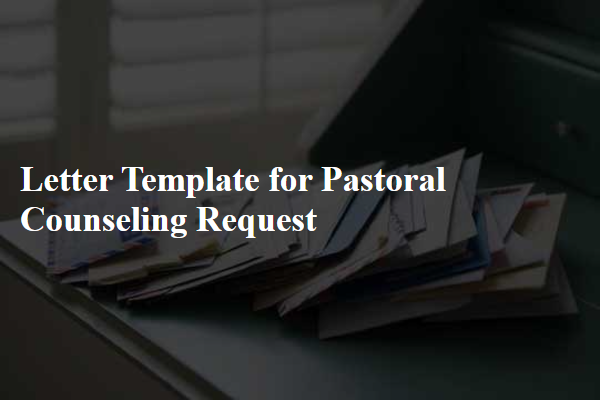
Personal Information
Pastoral counseling serves as a supportive resource for individuals seeking guidance, emotional healing, or spiritual growth within their faith community. Personal information, such as name, contact information (including phone number and email address), and preferred method of communication, is essential for establishing direct and confidential communication with the pastoral counselor. Additionally, individuals might provide details about specific concerns or challenges they face, such as grief, anxiety, or relationship issues, enabling the counselor to better understand their needs and tailor the counseling approach. Spiritual background, including denomination and church involvement, may also play a crucial role in contextualizing the individual's counseling experience.
Reason for Request
Individuals seeking pastoral counseling often cite a variety of personal challenges that lead them to request guidance and support. Common reasons include the need to cope with grief following the loss of a loved one, navigate relationship issues whether with family or romantic partners, face spiritual crises questioning faith or purpose, or manage anxiety and depression that impact daily life. These requests arise during significant life events like divorce proceedings, job loss, or health concerns, prompting the desire for compassionate counsel. Pastoral counseling provides a safe space for open discussions rooted in faith, aimed at healing and personal growth.
Availability and Scheduling Preferences
Pastoral counseling services offer emotional and spiritual guidance to individuals facing various challenges. Within a church community, members often seek support from pastoral staff trained in counseling methods. Availability for these sessions may vary among clergy, with some offering appointments on weekdays between 9 AM and 5 PM, while others may hold evening sessions or weekend counseling for greater accessibility. Scheduling preferences often depend on individual circumstances, with some clients prioritizing confidentiality and the choice of in-person or virtual meetings. When requesting counseling, it is crucial to consider both the pastor's current obligations and the express needs of the person seeking assistance, ensuring a mutually convenient arrangement for effective support during times of distress.
Privacy and Confidentiality Concerns
Pastoral counseling can provide essential support for individuals facing emotional or spiritual challenges within a faith community. Effective counseling practices emphasize the importance of privacy and confidentiality, ensuring that personal information shared during sessions remains protected. Many pastoral counselors adhere to ethical guidelines set forth by organizations such as the American Association of Pastoral Counselors, which outlines standards for confidentiality. In various faith contexts, such as churches or synagogues, those seeking counseling may express concerns about sensitive topics, such as marital issues or mental health struggles, potentially affecting their standing within the community. Additionally, legal frameworks, including HIPAA (Health Insurance Portability and Accountability Act), may guide confidentiality practices in certain counseling settings. Counselors typically discuss these confidentiality limits during initial sessions, fostering an atmosphere of trust and safe exploration of personal issues. Establishing clear boundaries can enhance the effectiveness of pastoral care, helping individuals navigate their struggles while feeling secure in the privacy of their conversations.
Contact Information
Pastoral counseling provides a supportive environment for individuals seeking guidance and understanding in times of emotional or spiritual struggle. This type of counseling, often facilitated by trained clergy or pastoral care professionals, focuses on spiritual growth, emotional well-being, and personal development. Individuals may reach out via contact information including phone number, email address, or in-person appointment requests to initiate the process. Counseling sessions can take place in various settings, such as churches, community centers, or private offices, allowing for a comfortable and confidential space to discuss personal challenges and seek encouragement.

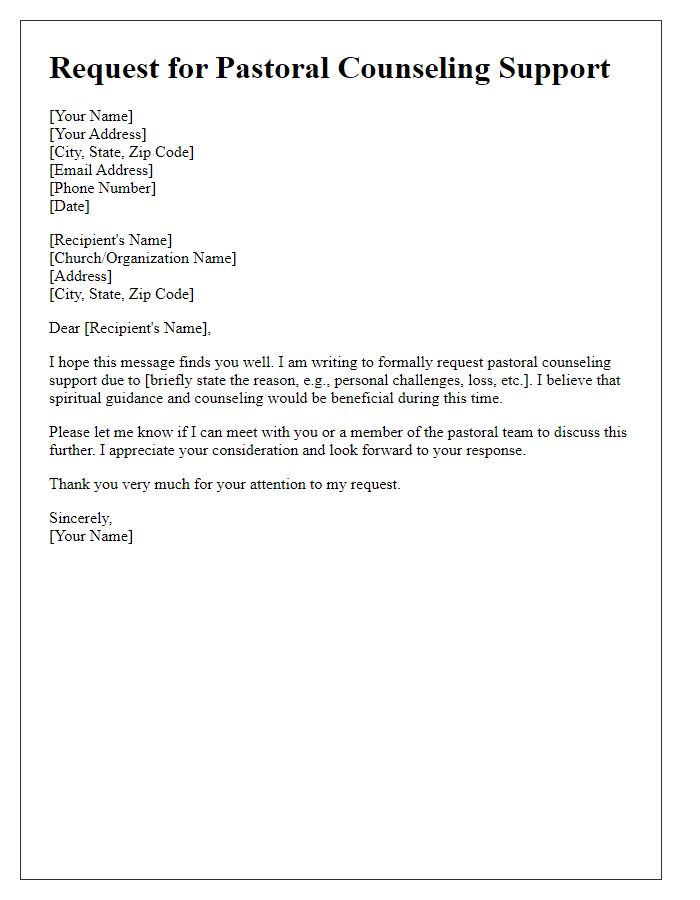
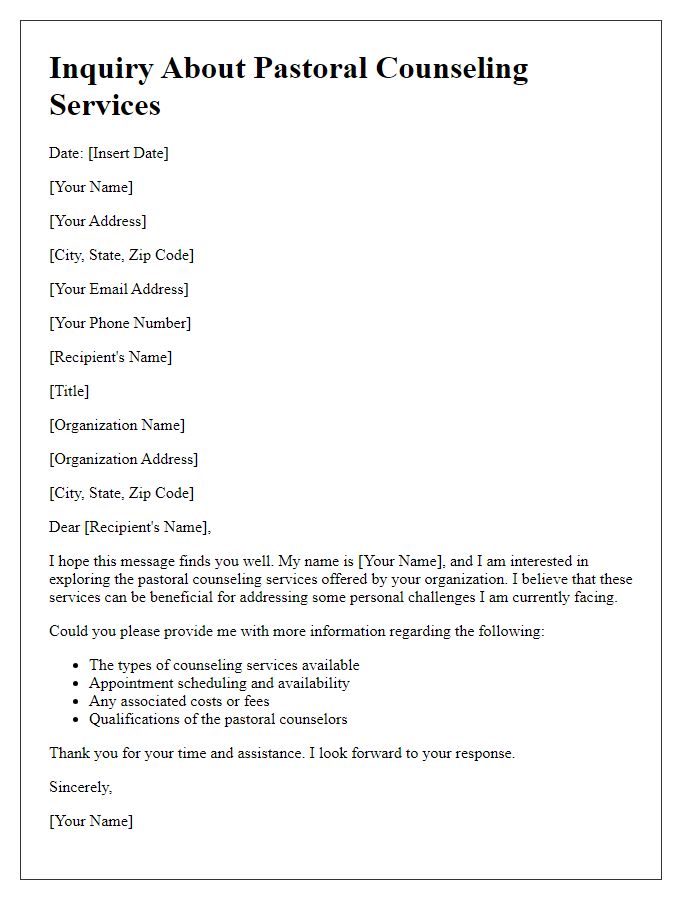
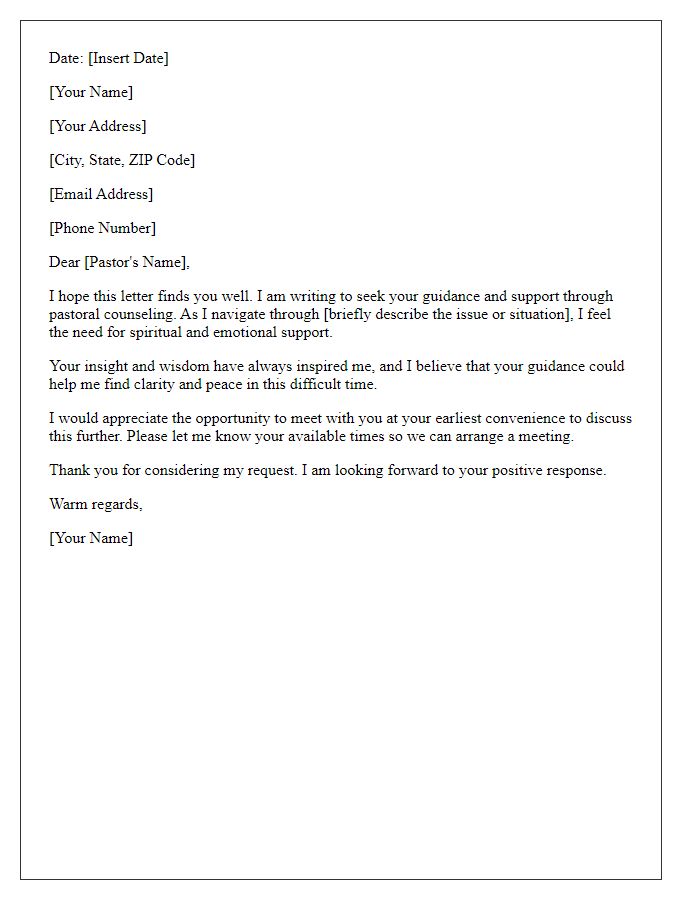
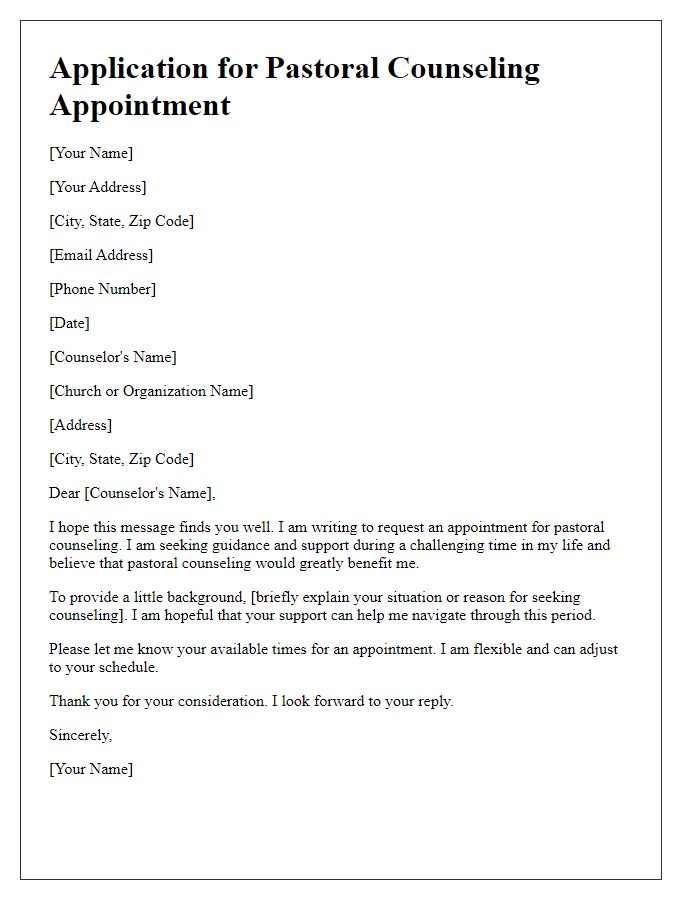
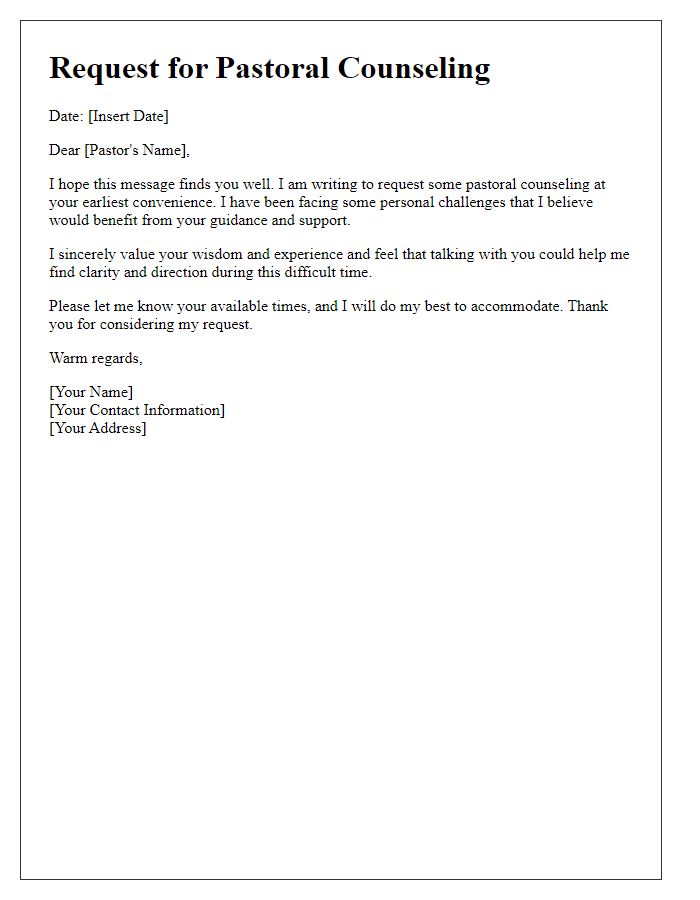
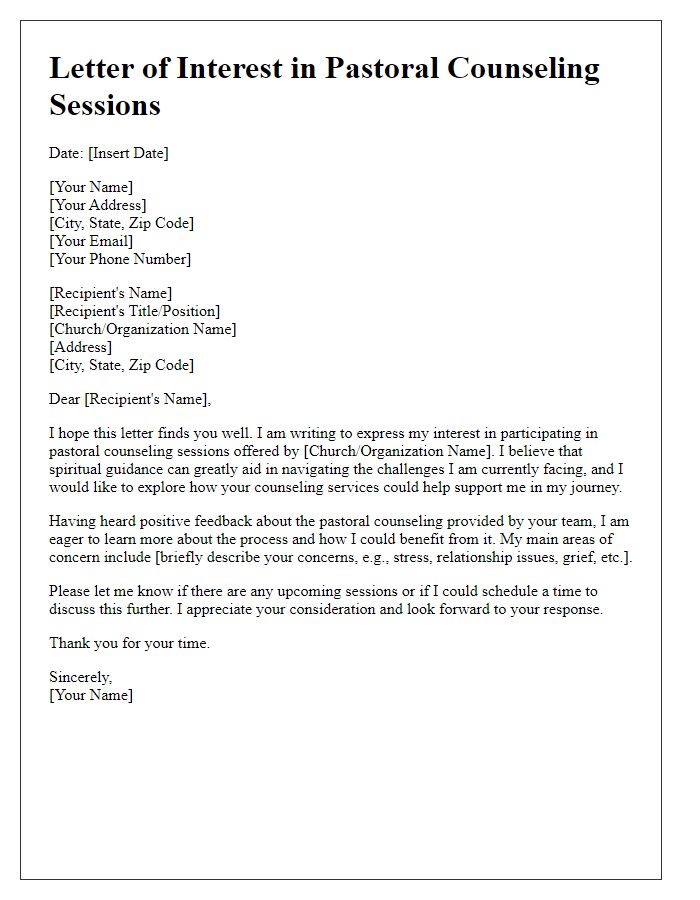
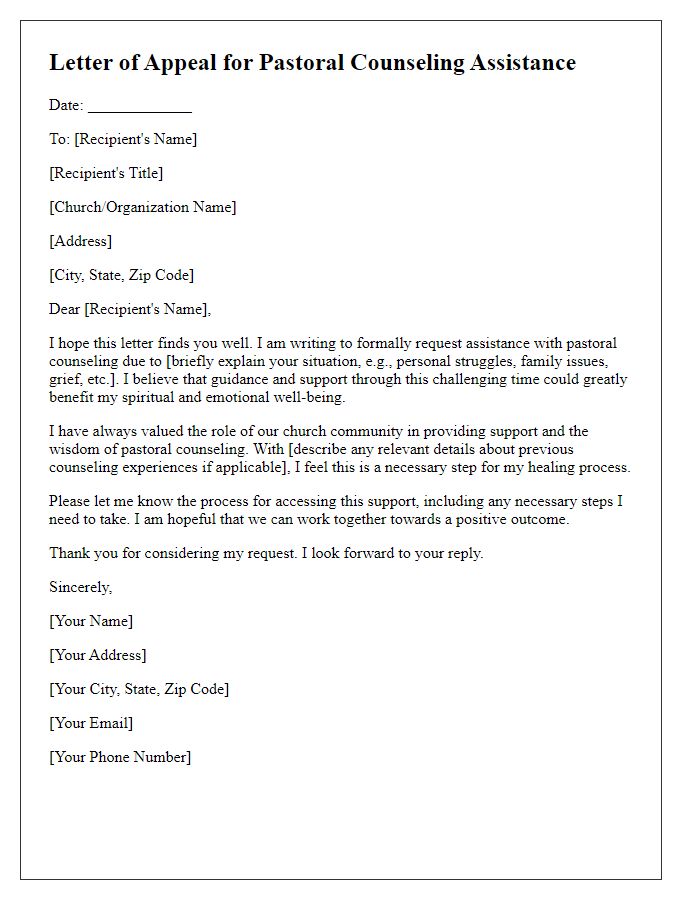
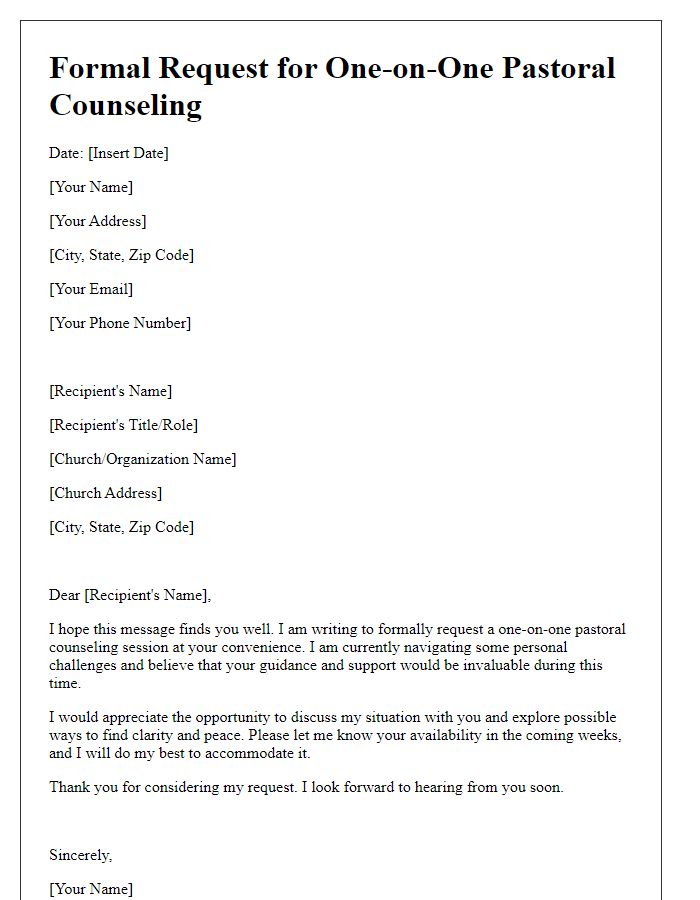
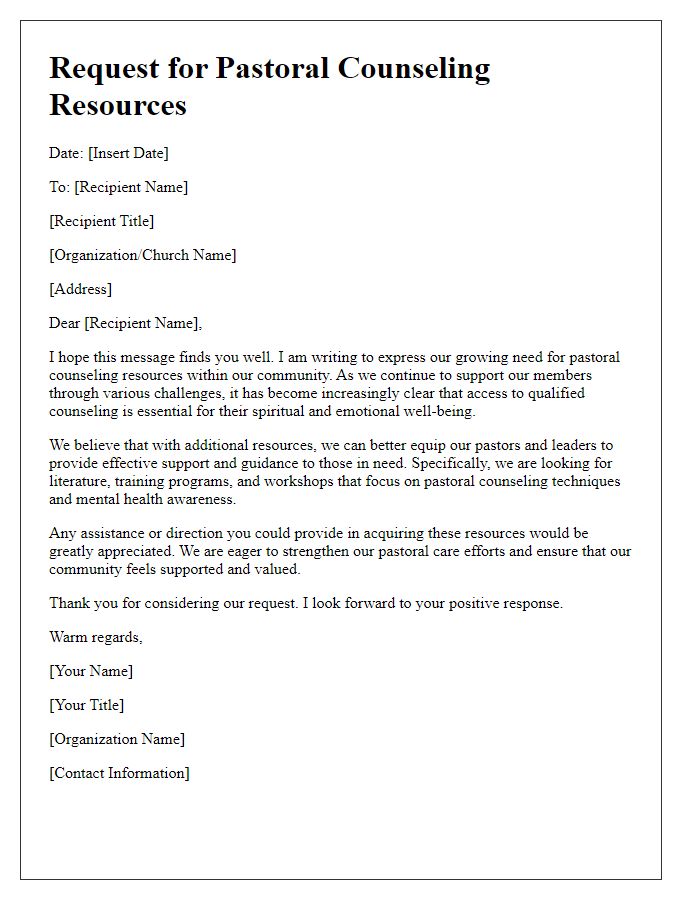
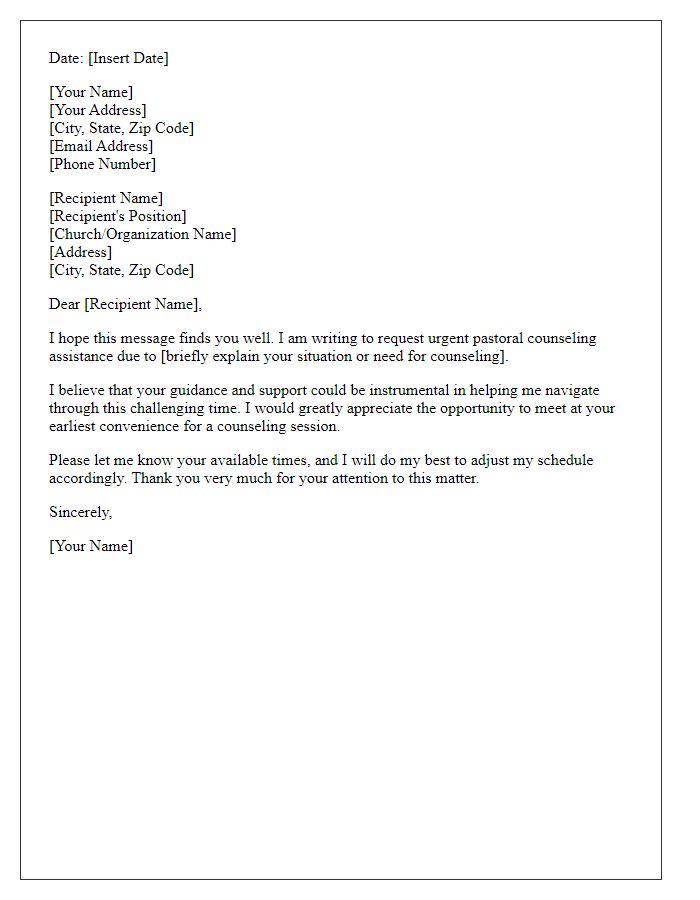

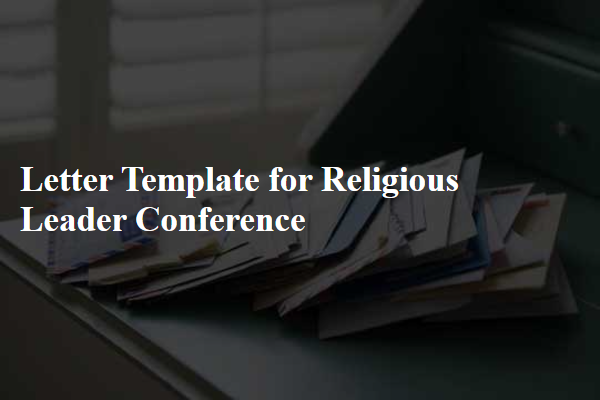
Comments